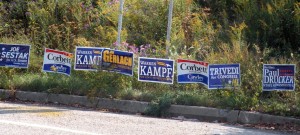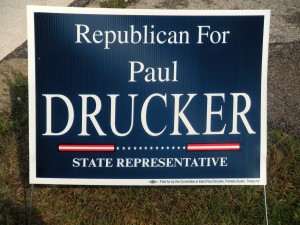We learned this week that the Senate Democrats have dropped an effort to include a ban on assault weapons from their broader gun control plan expected to be introduced to Congress next month. They conceded that a ban on assault weapons and high-capacity magazines did not have the votes to pass. However, VP Joe Biden is refusing to give up on the assault weapon ban; questioning the courage of members of Congress. He stated, “…That weapon of war has no place on American streets, and taking it off American streets has no impact on one’s constitutional right to own a weapon.”
Seriously, what does it take to get these weapons off the streets? In December, Adam Lanza committed mass murder at Sandy Hook Elementary School using a Bushmaster AR-15 “assault-type weapon”, a semiautomatic rifle that could rapidly fire multiple rounds. Lanza was also equipped with magazine clips that held 30 bullets each. If the innocent killing of 26 people isn’t the impetus for banning assault weapons in this country, what is? It is heartbreaking that some Washington legislators are more interested in the support of special interest groups than in doing what is right and passing a common sense gun violence bill. I would like to see these politicians forced to own their conscience in a roll-call vote; let us publicly see which side of the issue they stand.
Could our forefathers ever have envisioned Americans using assault weapons when designing the Second Amendment of the Constitution? How is that people can argue that banning assault weapons violates the 2nd amendment … this country had an assault weapon ban for 10 years and I do not recall it was ever legally challenged as unconstitutional. The assault weapon ban simply expired. If the argument is that assault weapons should not be banned because the Constitution does not specifically say that, why not take that argument further; the Constitution also doesn’t specify that the mentally ill or felons cannot own guns.
Unlike the United States, Australia was successful in passing legislation to ban assault weapons in 1996, in response to the massacre of 35 people. Australia’s law banned semiautomatic and automatic rifles and shotguns. It also instituted a mandatory buy-back program for newly banned weapons.
For those who would like to argue that banning assault weapons in the United States would not make a difference, I suggest that Australia’s statistics say otherwise. According to an Australian National University study, the firearm homicide rate fell by 59% and the firearm suicide rate fell by 65% in the decade after the 1996 law was introduced. These statistics indicate that Australia’s experience with an assault weapon ban provides strong evidence for the effectiveness of such legislation. In addition, it should be noted that Australia’s sweeping gun control measures occurred twelve days after the April 28, 1996 massacre, the worse mass murder in Australia’s history. In the aftermath of Sandy Hook, with our nation shocked and looking for answers, why can’t we learn from Australia’s example? Why reinvent the wheel, when Australia has successfully prevented gun massacres for over 15 years by banning assault type weapons and magazine clips over 10 rounds?
To be clear, I get it that stronger gun legislation, through banning of assault weapons and reducing clip sizes is not necessarily a favorable position, particularly among some in Pennsylvania. Taking the discussion to the state level, I was troubled to read a press release from the office of PA State Rep Daryl Metcalfe (R-Butler). He and fellow State Representative, Seth Grove (R-York) announced that they are actively pursuing out-of-state gun manufacturers and encouraging their relocation to Pennsylvania, claiming that our state has the “single largest per capita representation of National Rifle Association (NRA) members”.
According to Metcalfe, who is the prime sponsor of the Right to Bear Arms Protection Act (House Bill 357), “Pennsylvania is a natural fit for any of our nation’s major producers of guns, ammunition, or accessories that are currently looking for a new home due to the imposition of senseless, gun-grabbing legislation by their state or local governments.”
Passionate supporters of the Second Amendment and motivated by economic development, Metcalfe and Grove are rolling out the welcome mat to woo gun manufacturers including Beretta and Remington, to the Commonwealth. With Metcalfe and Grove posing as the front men for the NRA, there should be no doubt, where these two stand on banning assault weapons.
Buoyed by his proposed legislation, House Bill 357, Right to Bear Arms Protection Act, Metcalfe is determined to override any gun restrictions that Washington may come up with – HB 357 would actually prohibit the enforcement of any new federal registration, restriction or prohibition requirement for privately owned guns and ammunition. If passed, the bill further would require the state of Pennsylvania, including the Attorney General, to intercede on behalf of the citizens against any federal attempt to restrict, register or ban gun purchases, which are currently legal products.
I don’t claim to be any constitutional scholar but how is it possible that a state law, like HB 357 (should it pass) could legally stand up against a federal law? Wouldn’t any federal law, like banning the sale of assault weapons, take precedent over Metcalfe’s proposed House Bill 357? Nevertheless, Metcalfe and Grove are using their pro-gun message to reach out to gun manufacturers in less gun-friendly states, in hopes of encouraging them to relocate to Pennsylvania.
Is this the new approach to economic development in Pennsylvania?

